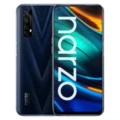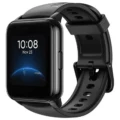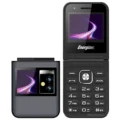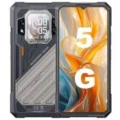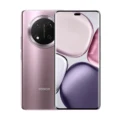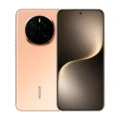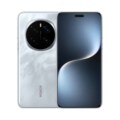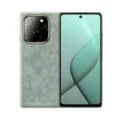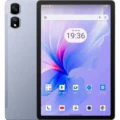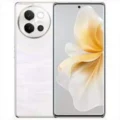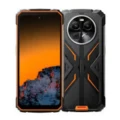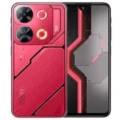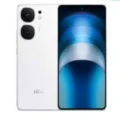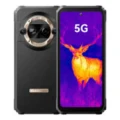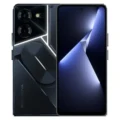Realme Narzo 70x


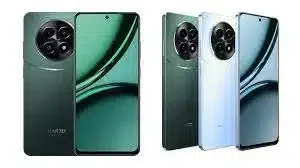
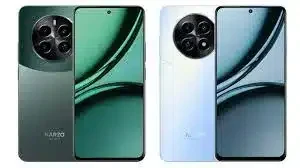
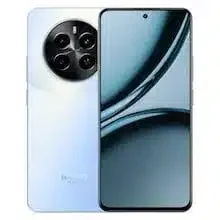
- : 4/6GB RAM Dimensity 6100+
- : 6.72" 1080x2400 pixels
- : 5000mAh 45W
- : 50MP 1080p
Realme Narzo 70x: Experience Next-Level Gaming and Speed at a Budget
The Realme Narzo 70x takes budget-friendly phones to the next level, focusing on powerful performance and an immersive display ideal for gamers and everyday users alike. Here’s a closer look:
Unleash Gaming Prowess with Powerful Processing
The Narzo 70x boasts the MediaTek Dimensity 6100+ 5G chipset, built on a 6nm process for efficient power consumption and impressive performance. This combination delivers smooth operation for everyday tasks and tackles even demanding games with ease.
Dive into a Hyper-Smooth Display
The phone features a captivating 6.72-inch display with a 120Hz refresh rate. This translates to ultra-smooth visuals, perfect for gamers who crave minimal lag and a seamless experience during intense gameplay. Even for everyday use, scrolling and navigating the phone feels incredibly fluid.
Stay Future-Proof with Blazing-Fast 5G
The Narzo 70x embraces the future with 5G connectivity. Experience lightning-fast download and upload speeds, allowing you to download large games or files in a flash, stream high-resolution content without buffering, and enjoy ultra-low latency for online gaming (availability of 5G networks may vary depending on your region).
Capture Stunning Photos (Especially in Good Lighting)
The 50MP main rear camera on the Narzo 70x lets you capture impressive photos, particularly in well-lit environments. Whether you’re snapping casual shots or capturing special moments, the camera delivers decent quality without breaking the bank.
Long-Lasting Power and Speedy Charging
The phone packs a beefy 5000mAh battery, offering all-day power for gamers and heavy users. Even if you run low, 45W fast charging technology ensures you can quickly top up the battery and get back in the game (or back to your day) in no time.
Looking for Even More?
It’s important to note that Realme might offer other Narzo 70 series phones with different specifications. However, the Narzo 70x focuses on a balance between affordability, powerful performance for gaming, and a smooth display for an immersive user experience.
So if you want to explore more, visit the official website of Realme https://www.realme.com/
For more brand-new smartphones from other brands, visit our page https://gadgetsfocus.com/mobiles_smartphones_phones_android_ios/
Specs
Network
| 2G Network GSM 850 / 900 / 1800 / 1900 - SIM 1 & SIM 2 (dual-SIM) CDMA 800 / 1900 |
GSM 850 / 900 / 1800 / 1900 - SIM 1 & SIM 2 |
| 3G Network |
HSDPA 850 / 900 / 2100 |
| 4G Network | 1, 3, 5, 8, 28, 40, 41 |
| 5G Network | 1, 3, 5, 8, 28, 40, 41, 77, 78 SA/NSA |
| Speed | HSPA, LTE, 5G |
LAUNCH
| Announced | April, 2026 |
| Status | Available. Released 2024, April 24 |
BODY
| Dimensions | 165.6 x 76.1 x 7.7 mm (6.52 x 3.00 x 0.30 in) |
| Weight | 188 g (6.63 oz) |
| SIMs SIM (Subscriber Identity Module) is a small card that contains mobile network subscriber's account information. This allows the phone using the card to attach to a mobile network. The SIM card is most commonly associated with GSM and UMTS mobile networks. Moving a SIM card from one phone to another allows a subscriber to switch mobile phones without having to contact their mobile network carrier. SIM cards can also be used by a phone to store limited amounts of data, such as phone numbers and text messages. |
Hybrid Dual SIM (Nano-SIM, dual stand-by) IP54, dust and splash resistant |
Display
| Display Type Display Technology => A number of display technologies and types used in mobile phones => TFT (Thin Film Transistor), IPS (In-Place Switching), OLED (Organic Light Emitting Diode), AMOLED (Active-Matrix Organic Light-Emitting Diode), Super AMOLED (an even advanced version of AMOLED), Resistive Touchscreen (Resistive touchscreens contain two layer of conductive material with a very small gap between them which acts as a resistance), Capacitive Touchsceen (Capacitive touchscreen technology consists of a layer of glass coated with a transparent conductor) | IPS LCD, 120Hz, 800 nits (typ), 950 nits (HBM) |
| Size | 6.72 inches, 109.0 cm2 (~86.5% screen-to-body ratio) |
| Resolution | 1080 x 2400 pixels, 20:9 ratio (~392 ppi density) |
PLATFORM
| Operating System OS => Every computer system run on a base software called Operating System (OS). Operating System controls all basic operations of the computer (such as smartphone, PDAs, tablet computers and other handheld devices). The Operating System allows the user to install and run third party applications (apps), apps are used to add new functionality to the device. | Android 14, Realme UI 5.0 |
| Chipset Chipset is a group of integrated circuits designed to perform one or a more dedicated functions, often with real time computing constraints, Popular smartphones are equipped with more advanced embedded chipsets that can do many different tasks depending on their programming. | Mediatek Dimensity 6100+ (6 nm) |
| CPU CPU (Central Processing Unit) mostly known as processors, CPU processes instructions in order to carry out certain functions that make your device operate properly. Processors are often described as the brain of computers, smartphones and tablets, Smartphones and tablets rely on processors to carry out their every task, Processors are an incredibly important factor in selecting any type of computing device, including your smartphone. | Octa-core (2x2.2 GHz Cortex-A76 & 6x2.0 GHz Cortex-A55) |
| GPU GPU (Graphics Processing Unit) is a single-chip processor designed to rapidly manipulate and alter memory to accelerate the creation of images in a frame buffer intended for output to a display, This includes things such as lighting effects, object transformations, and 3D motion. | Mali-G57 MC2 |
MEMORY
| Card Slot Memory Card Slot is a special slot for inserting a memory card. Memory cards allow you to expand the phone's built-in memory, A memory card (sometimes called a flash memory card or a storage card) is a small storage medium used to store data such as text, pictures, audio, and video, for use on small, portable or remote computing devices such as mobile phones, mp3 players, digital cameras. | microSDXC (uses shared SIM slot) |
| Internal | 128GB 4GB RAM, 128GB 6GB RAM |
MAIN CAMERA
| Cameras Specs Today’s smartphones come equipped with a very comprehensive set of camera related specifications. Our smartphone, for many of us, has become our primary camera due to it being the one we always have with us. |
50 MP, f/1.8, 26mm (wide), 1/2.76", 0.64µm, PDAF 2 MP, f/2.4, (depth) |
| Video | 1080p@30fps |
| Camera Features | LED flash, HDR, panorama |
SELFIE CAMERA
| Cameras Specs Today’s smartphones come equipped with a very comprehensive set of camera related specifications. Our smartphone, for many of us, has become our primary camera due to it being the one we always have with us. |
8 MP, f/2.0, 26mm (wide), 1/4", 1.12µm |
| Features | Panorama |
| Video | 1080p@30fps |
SOUND
| Loudspeaker | Yes, with stereo speakers |
| 3.5mm jack | No |
COMMS
| WLAN |
Wi-Fi 802.11 a/b/g/n/ac, dual-band |
| Positioning |
GPS, GLONASS, GALILEO, BDS, QZSS |
| Bluetooth Bluetooth is a wireless communications technology for exchanging data between mobile phones, headsets, computers and other network devices over short distances without wires, Bluetooth technology was primarily designed to support simple wireless networking of personal consumer devices. | 5.3, A2DP, LE, aptX HD, LHDC |
| Infrared Infrared connectivity is an old wireless technology used to connect two electronic devices. It uses a beam of infrared light to transmit information and so requires direct line of sight and operates only at close range. | |
| USB | USB Type-C 2.0 |
| NFC NFC (Near field communication) is a set of standards for smartphones and similar devices to establish peer-to-peer radio communications with each other by touching them together or bringing them into proximity, usually no more than a few inches. | |
| Radio |
Features
| Sensors Sensors are electronic components that detects and responds to some type of input from the physical environment. The specific input could be light, heat, motion, moisture, pressure and location, The output is generally a signal that is converted to use in computing systems, a location sensor, such as a GPS receiver is able to detect current location of your electronic device. |
Fingerprint (side-mounted), accelerometer, gyro, proximity, compass |
BATTERY
| Battery Type Battery Type => Cell phones run on various kinds of batteries depending on the manufacturer, phone size or shape and features. There are basically four types of cell phone batteries => Lithium Polymer, Lithium Ion, Nickel Metal Hydride and Nickel Cadmium. | Li-Ion (Lithium Ion) |
| Charging The functionality responsible for recharging batteries in portable devices, such as mobile phones, significantly influences both battery lifespan and the practicality of daily product usage.The charging process, encompassing factors like voltage, current, and completion actions, is contingent upon the battery's size and type.Contemporary battery chargers dynamically adjust charging parameters based on the battery's current charging state. Charging an empty battery poses no safety risk, allowing for a quicker charging process. Consequently, many charging speed benchmarks, including ours, specify the battery level achieved after a 30-minute session on an empty battery.Standard chargers with a power output of 5V/1A, equivalent to 5W, serve as a baseline, with anything surpassing this speed classified as quick or fast charging. | 45W wired, 1-50% in 30 min (advertised) |
MISC
| Colors |
Ice Blue, Forest Green |
| Price | ₹ 11,999 |
TESTS
Reviews
Disclaimer Note
We strive to maintain accurate and up-to-date content on our website for general information purposes only. Please refrain from using the material for business, legal, or any other decisions.


